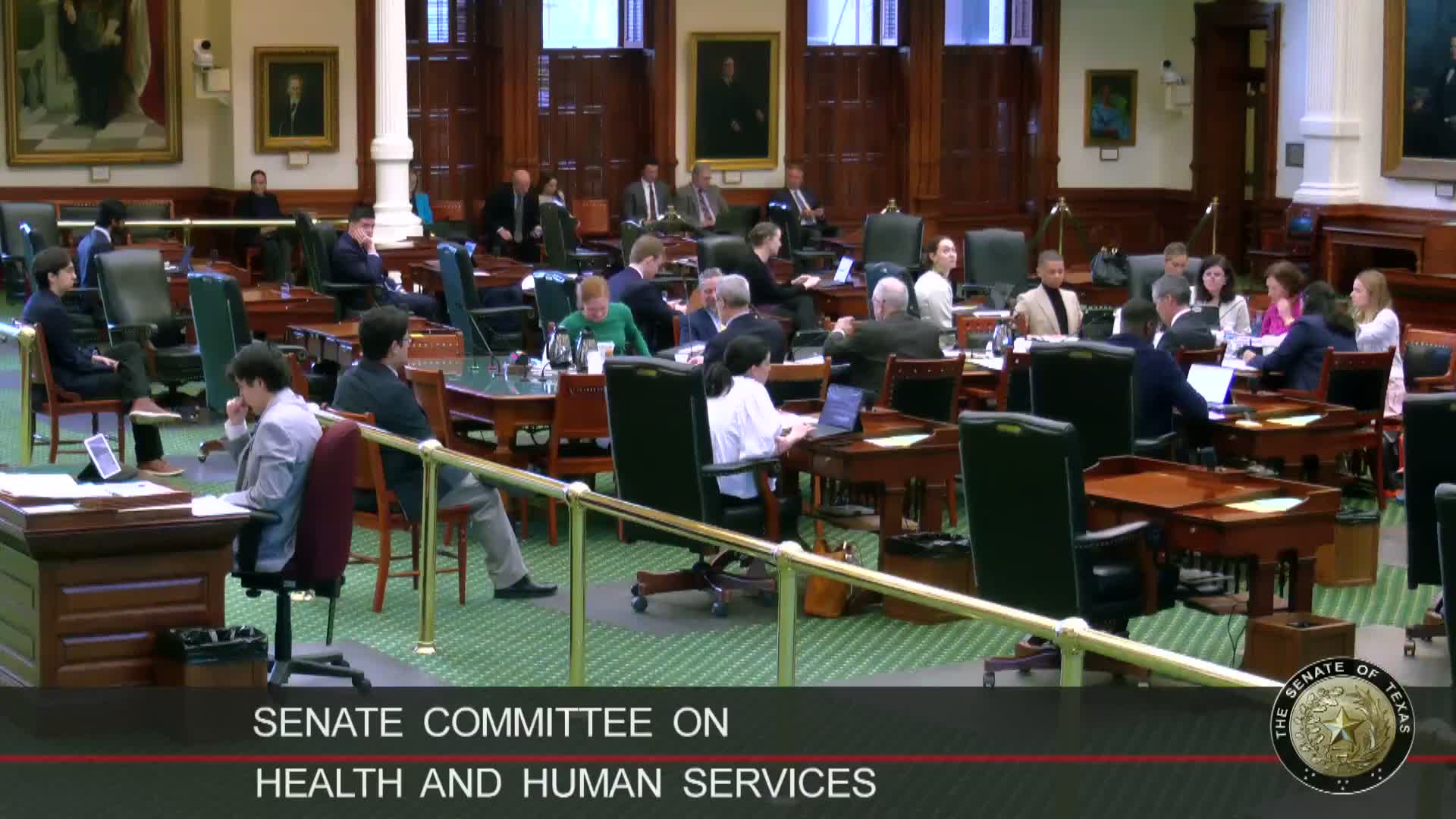Texas senators hear bill to require hospitals to report monthly child‑abuse referral data to HHSC
Get AI-powered insights, summaries, and transcripts
Subscribe
Summary
Senators discussed Senate Bill 128, which would require hospitals to submit monthly reports to the Health and Human Services Department on child‑abuse reports they originate, and heard testimony from DFPS and hospital advocates about data availability and implementation burdens. The committee left the bill pending after public testimony.
Senate Bill 128 would require hospitals to submit a monthly report to the Health and Human Services Department (HHSC) that lists the number of child‑abuse reports hospitals originate, whether parents or guardians were notified, diagnostic codes used, and a signed affidavit from the physician who made the report. The bill would also create an administrative penalty for late reports, deposit collected penalties into the commission's general revenue fund and require HHSC to report quarterly to the Legislature. Rulemaking authority would be granted to the HHSC executive commissioner.
Why it matters: Sponsors said the measure aims to create a transparent record showing how often hospital‑originated reports lead to child‑welfare interventions and to deter reckless reporting that can separate families. Advocates recounted family cases the bill’s backers say could have been prevented with better data and hospital checks; hospitals warned the added reporting could be administratively burdensome and may require changes to existing information systems.
The committee heard resource testimony from the Department of Family and Protective Services (DFPS). Audrey O'Neil of DFPS said the department tracks reporter categories (for example, medical professionals) but does not currently compile reports by hospital; reports are submitted by individual reporters. She said DFPS could work to extract facility information from its intake/case management system but that doing so would likely require additional work and possibly changes to data intake fields.
Jeremy Newman of the Family Freedom Project and Lee Spiller of the Citizens Commission on Human Rights Texas testified in support, describing cases they said illustrated the need for clearer records and more hospital accountability. The Texas Hospital Association, represented by Steve Wallop, testified in opposition, saying hospitals typically do not centralize reporting information and cannot compel non‑hospital physicians to provide signed affidavits. Wallop said some requirements in the bill (for example, signed affidavits from physicians who assigned diagnostic codes) could be impractical because the physician who assigned a code may not be a hospital employee.
Senators asked whether DFPS could, with a modest change, add a field to intake to capture the reporting facility; DFPS said it might be possible to add such a data field and to summarize the information but that distinguishing between a physician in private practice and a physician acting as a hospital employee would take additional effort. Several senators said they preferred legislative reporting to the Legislature (not broad public posting) to provide “a light” on problem patterns without jeopardizing ongoing investigations.
Public testimony closed and the committee left the bill pending for further work on data access, the fiscal impact of any system changes, and the exact reporting fields that HHSC or DFPS would collect.
